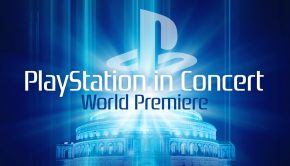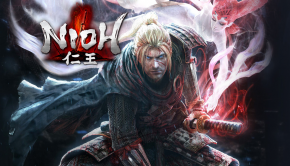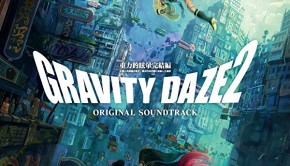Boris Salchow Interview: Emotional Modernist Scoring
Boris Salchow is best known for his cinematic orchestral scores for the Resistance and Ratchet & Clank series. Yet it is only recently that the composer has migrated from Germany to Los Angeles and pursued work on video games. His other activities have included scoring high-profile film and television projects, and performing as an electronic artist.
In this interview, Boris Salchow focuses on his score for Resistance 3, noting that it is more emotionally focused and lavishly produced than its predecessors. He also discusses why he shifted the music forRatchet & Clank: A Crack in Time towards a more cinematic direction. He also discusses his background and wider work in greater detail. The image is supplemented with photos of the recording session for Resistance 3 at Abbey Road Studios, courtesy of Tom Bowles.
Interview Credits
Interview Subject: Boris Salchow
Interviewer: Chris Greening
Editor: Chris Greening
Coordination: Greg O’Connor-Read
Interview Content
Chris: Boris Salchow, many thanks for talking to us today about the music for the Resistance series. First of all, could you introduce yourself to our readers and tell us about your musical background and education?
Boris Salchow: My pleasure. My name is Boris Salchow, and I’m a composer based in Los Angeles. I write music for television, films, and commercials and, for a few years now, video games have become a substantial part of my work.
I grew up in a household where you would hear classical music at all occasions. I studied piano for many years, but in my late teenage years I entered the realm of rock, and the electric guitar became my main instrument for quite some time. Then one day I heard some music by Aphex Twin for the first time and that initiated a whole new phase in my musical life of writing and performing electronic music.
Now, every day, I feel like I am using these three pillars as the foundation for my work as a composer for games, movies, and television.
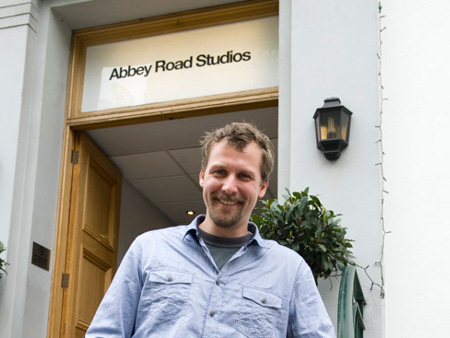
Chris: Resistance 3 is the latest in a line of science-fiction shooters for the PlayStation 3. Could you outline how you developed the creative direction for the title compared to Resistance 2? How have you developed the series’ personality?
Boris Salchow: The music for this game strikes a very different tone than Resistance 2. Early on, I was sitting down with the Audio Director at Insomniac, Paul Mudra, and the Creative Director of the game, Marcus Smith. It was clear from the beginning that the character of the story was very different this time — abandoning any and all military aspects. The music had to reflect that, of course.
And many times the music is able to add a whole new layer of emotion to what you actually see on the screen — creating that image of a sad and desolated world in which humans try to survive from one day to the next.
Chris: Key to the more emotive approach is the recurrence of several central motifs on Resistance 3. Could you elaborate on how you developed these motifs? Are you satisfied with how they support the scenario?
Boris Salchow: For Resistance 3, I started writing a couple of themes in my studio very early on, before seeing any video, but I was aware of the overall storyline and some of the main characters. Quite a few motifs of the final score have their origins in those initial compositions; some others I wrote while being in the midst of production when the characters were introduced later on in the game.
I did not have a chance to play through the game yet, but I know Insomniac were very happy with the way these themes managed to tie the whole story together.
Chris: A particularly impressive feature of the Resistance 3 score is its production values. What do you think recording the score with full orchestra brought to the experience? Did Abbey Road Studios live up to its reputation for you?
Boris Salchow: Since we were placing such emphasis on the human aspect of the story, it was crucial to record as much of the music live as possible. With live action footage, I find it impressive how the overall feel of the game changes if you have music that has been performed by real players instead of being generated in a computer. This is especially the case with games as opposed to movies or television.

Chris: Much of your score for Resistance 3 seems deeply influenced by modernist symphonists and classic film composers. To what extent do you agree? Are there any particular composers that inspired you while creating the score?
Boris Salchow: For this particular score my references were kind of a Stravinsky and Tom Morello co-production for the alien portion of the music. And for some of the more human elements I did find a few segments in John Williams’ War of the Worlds soundtrack that were interesting to me.
Subconsciously, I may have referred to the Cold War era a little, but with the game being set in that time period this reference is actually not too farfetched.
Chris: While this score testifies to your classical training, you are also an experienced electronic artist and band performer. Could you tell us more about your works under the name Pulsenoir? Do you ever receive the opportunity to demonstrate your contemporary influences in scoring projects?
Boris Salchow: Pulsenoir was a project of mine a long time ago before I started writing music for television and film. It was my artist name when I was asked to perform a selection of slow, emotional, and lengthy (at times 20 minutes long) sombre pieces of electronic music. I continued writing under that name for a few years and I performed at several electronic music festivals.
Hopefully one day I will find the time to write more music for that project — stylistically it is an integral part of who I am as a composer.
Chris: It’s only in the past three years that you have extensively worked in the video game industry, and you previously focused on television and commercials. Could you tell us more about your work on detective series and domestic movies in Germany? How did these experiences prepare you for international projects?
Boris Salchow: Sure. Before moving to the US, I spent about eight or nine years writing music for television series, movies, advertisements, audio books, and online projects. These are the projects that taught me how to write music when the music is actually just one part of a bigger project — it has to fulfill a function to enhance the medium. And it also has to be written and produced within a certain amount of time and a designated budget.
From a creative standpoint though, I am much more fulfilled since moving to the US. Generally speaking, there is more creative freedom and there are more opportunities to experiment with music here.
 
Chris: When you relocated to Los Angeles, you shifted your focus towards feature film composition (e.g. 80 Minutes, Prom Night) and high-profile commercials (e.g. Adidas, Lambhorgini). Are the demands in Hollywood any different from Germany or are the clients simply higher-profile?
Boris Salchow: I would say both. For movies, games, and television, Hollywood is definitely raising the bar compared to many other places. But the two commercials you mentioned are projects out of Europe — in terms of music for advertisements Europe is great!
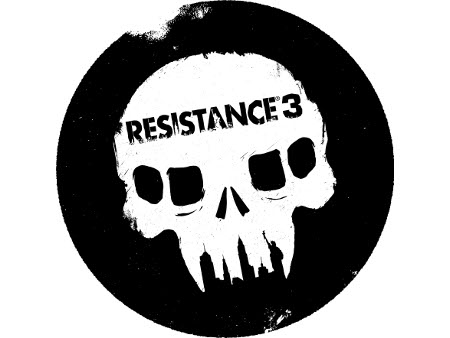
Chris: It’d be interesting to hear what inspired you to take on video game scores in the first place. Was it personal preference or circumstance? How would you compare such projects to your film and television scoring works?
Boris Salchow: I think video games are a fascinating medium because they are still evolving a lot. I actually do enjoy the challenge of having to think about the interactive twists that storytelling can offer in games. At the same time, my main job and passion is writing music-to-picture. And as long as the project is of a high quality, regardless if it’s linear or interactive, I just love doing what I am doing.
Chris: You scored another title for Insomniac Games, Ratchet & Clank Future: A Crack in Time, once again shifting the musical direction of the series. What do you think your more cinematic approach brought to the in-game experience? How did you adapt your scoring palette to fit the light-hearted characters?
Chris: I love switching gears! When being involved in a game like Resistance 3 (which took me 14 months to complete), I do work on other shorter projects in-between that can be of a very different nature. But it indeed took us a while until we found the right language for that fantastic space duo Ratchet and Clank.
The creative director on that title, Brian Allgeier, had a clear vision of how he wanted the game to sound and feel and I personally think that the direction we chose was a perfect match for the characters and the story. But that is maybe also the case because I always like to put everything into context, so the same battle taking place early in a game compared to the end of the game would feature different nuances musically, depending on where you are in the overall story arc. This kind of storytelling you can best do with a more cinematic approach.
Chris: It was actually David Bergeaud that created the soundscapes for the original Resistance: Fall of Man and Ratchet & Clank. While scoring these franchises, were you ever mindful of his approach? Or have you aimed to change the musical direction of the series altogether?
Boris Salchow: The music that David created for the Ratchet and Clank series has always been an important ingredient of its universe. In my eyes, he did an amazing job creating a cheerful and entertaining recipe that was the perfect match for the previous games.
With Ratchet & Clank: A Crack In Time, Insomniac wanted to take a more theme-driven direction, but there were some characters who used to have certain sounds or instruments attached to them and I definitely tried to reference those when possible.

Chris: After a year in the making, your score for Resistance 3 has finally been revealed. Do you have any further words you’d like to say about the project? In addition, is there any message you’d like to leave readers across the world?
Boris Salchow: Working on this project was a very exciting experience. Insomniac did an amazing job creating a story that strikes a great balance between action and emotional moments. I really hope players will enjoy this cinematic experience. And hopefully there will be many more games immersing players into well-told interactive storylines.
Posted on October 15, 2011 by Chris Greening. Last modified on February 27, 2014.

